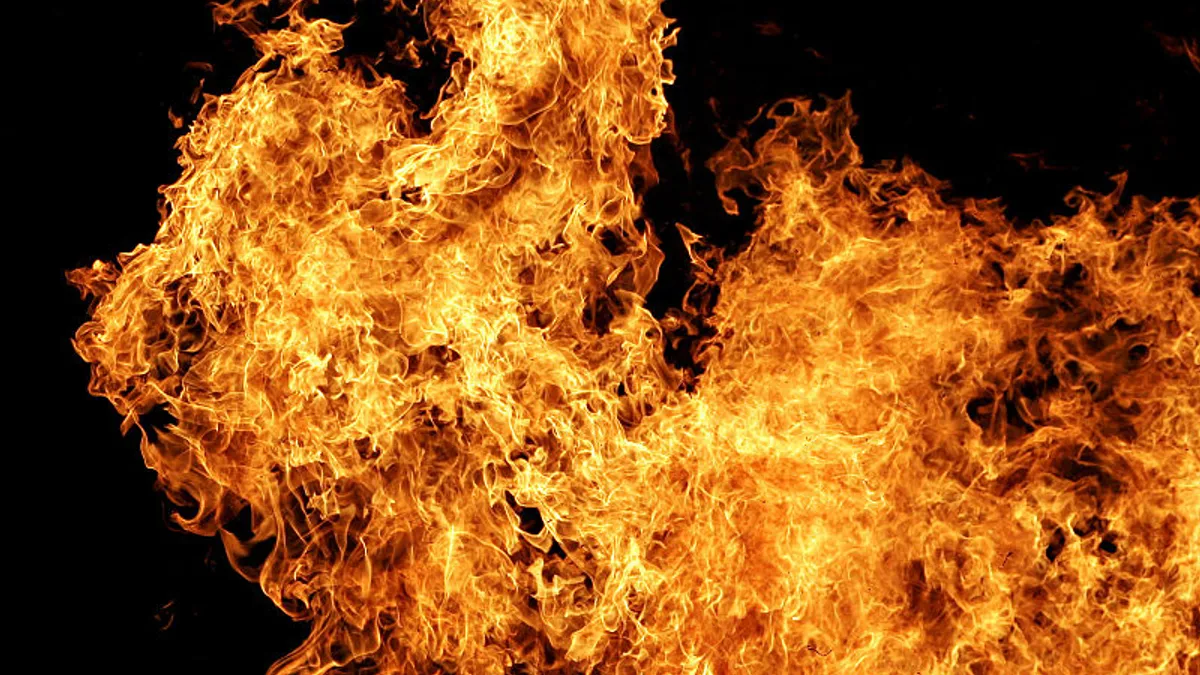Facility fires are common. Letting them get out of control doesn't need to be.
As many in the industry are aware, unchecked fires can result in serious injuries or death and cause significant property damage that can lead to a pause or loss in business. As highlighted in a recent WasteExpo panel, even the most well-run facilities are not immune to these fires — and operators aren't helping themselves by pretending otherwise.
"When you look at this industry, we're taking a bunch of material and we're taking it down to individual components, and with that there’s inherent risk of fire," said Ryan Fogelman, vice president of business development for FireRover. "You can't stop a lithium ion battery exploding, you can't guarantee a propane tank won't get into a shredder."
Fogelman's ongoing count of North American facility fires based on media reports has been stirring up some attention. At a minimum, he knows there were at least 267 reported industry fires within the most recent 12-month period available. Over 90% of those fires were caused by smoldering material, not explosions or large initial incidents, and could have been easily prevented.
Fogelman believes the industry has been too occupied by its ongoing employee safety challenges to dedicate enough attention to fire mitigation. Others on the panel shared his sentiments about prevention, along with tips for keeping future blazes under control or trying to prevent them.
Best practices
-
Park front-end loaders and other equipment outside or away from facilities. If the building catches fire, that equipment will play a critical role in moving material around to stop it from spreading.
-
Keep facilities clean. This means getting material out from behind push walls and keeping up on dust collection. "That stuff burns also. It doesn't help you if you do have an event," said Brent Shows, corporate operations manager for Advanced Disposal Services.
-
Be mindful of how trucks are parked on a lot. Michael Hughes, corporate director of safety and compliance for Casella Waste Systems, said he aims to park no more than three of the same type next to each other. If a fire breaks out it will be easier to replace a few of each model rather than finding a dozen rear-loaders on the fly.
-
Make sure every company vehicle — not just the trucks — has at least one fire extinguisher. If a truck catches fire out in the field any team member can pitch in with an extinguisher from their trunk.
Planning
-
Have answers to tough questions. No operator wants to lose a facility or equipment, but they should plan for what would happen if they did. Would the loss of a transfer station make it impossible to service an existing municipal contract? Could a piece of equipment be replaced by a neighboring facility?
-
Decide how much to invest on available technology. Will basic sprinklers and smoke detectors suffice, or is a facility critical enough to invest more? Covanta CEO Stephen Jones recently told Waste Dive the company is looking into infrared heat detection and water cannons following a February fire that created significant damage at a waste-to-energy facility in Virginia.
-
Have a plan if a truck's load catches fire. For example, Advanced Disposal dumps the waste in place while Casella looks for local parking lots, ideally at public works facilities when possible. Hughes noted that it's easier to clean up a $3,000-$5,000 mess on the pavement than recoup the loss of a truck worth more than $300,000.
Communication
-
Know how to get in touch. ReEnergy, a biomass conversion and recycling company, has created a "fire brigade" that helps call people into work when a fire breaks out. "Response time is the difference between control and chaos," said David Devito, general manager of ReEnergy's New Hampshire facilities.
-
Delegate. The ReEnergy team has systems in place to establish a central command center, monitor air quality and split up to tackle different elements of a fire. Through proactive engagement with fire departments some of these employees have trained with live fires under the supervision of local officials.
- Understand that proactive engagement is also important for companies with CNG vehicles. Firefighters that know the placement of gas valves may wait to watch where flames are coming from rather than rushing in immediately. "Don't panic if the fire department doesn't put the fire out right away," said Hughes.















